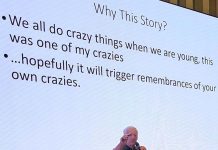“If it bleeds, it leads.” This has long been an axiom in the news business. This is why crime and disasters usually grab the headlines. Unfortunately, this can lead to distortions and biases in the media, according to journalist Patrick Mattimore, the guest speaker at the Sunday, November 6, meeting of the Pattaya City Expats Club. Patrick said that by pointing out some of the common distortions in the media, he could hopefully help us become better consumers of the news. According to Patrick, media distortions have to do less with the media itself, and more with us; the media often gives us what we want, not what they want to feed us.

Patrick said he became interested in this phenomenon because of two personal experiences: He and his family had just returned from Peru. At the airport, he saw a New York Times newspaper with a headline saying that there was a huge demonstration in Peru, and a government takeover was imminent. But having just been in Peru that morning, he knew that in reality it was small demonstration, not a big issue. His conclusion was that if the story had been reported the way he saw it; it wouldn’t have even made the news. The reporter, he concluded, had to sensationalize the story in order to make it into the paper.
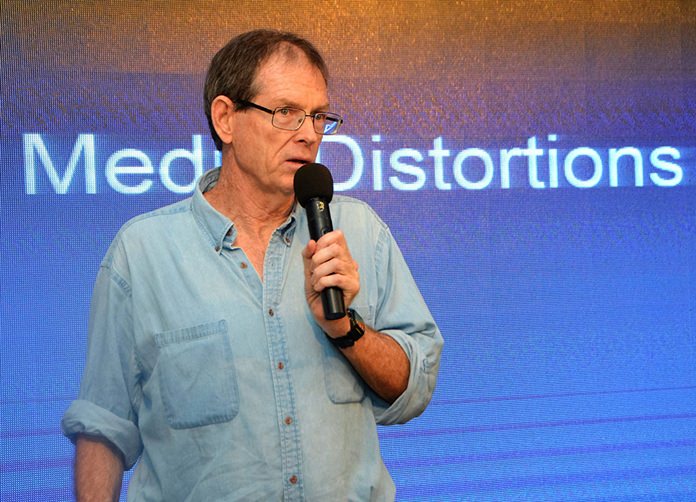
Patrick’s second experience occurred in China while he was writing a column for China Daily. A rumor started that supposedly a large number of employees at FoxConn, a large Taiwanese manufacturing company, had been committing suicide. One news source reported the rumor, and other sources picked it up and started to speculate that working for a big company could lead to suicide. Unlike other reporters, Patrick did some research, which showed that the percentage of suicides among the 800,000 FoxConn employees was no higher than the country-wide average.
To make matters worse, he said, splashy news stories can lead to bad policies. When FoxConn read the news about suicides at their company, they decided to build aggression rooms – places where employees could punch bags with faces of their boss. But psychologists say that taking your aggression out on someone else to remove your original aggression actually makes you want to punch your boss even more. So FoxConn ended up spending a lot of money on a policy that only made things worse, because of a story that shouldn’t have made the news in the first place.
According to Patrick, media distortions can cause us to fear the wrong things. For example, in the three month period following the terrorist attack in New York on September 11, 2001, people drove their cars instead of flying; but traffic accident fatalities jumped by 350 compared to the same period the previous year. Statistics show that you’re more likely to die in a traffic accident than in a terrorist attack. He said media distortions also cause us to fear immediate things, for example you are more likely to die from smoking than from terrorist attacks; things we can’t control.
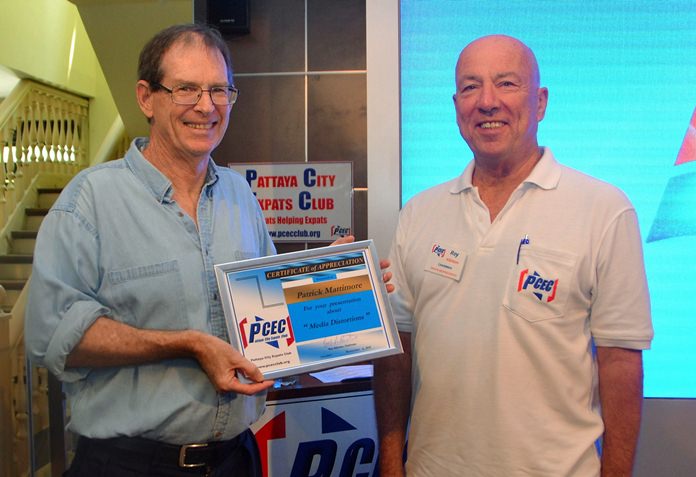
Patrick related an episode in Seattle during the Cold War, when there was a story in the newspaper about little pings showing up in people’s windshields. There was a lot of speculation about what the dents were, and the governor called out the National Guard. They ended up discovering the dents were caused by natural road wear.
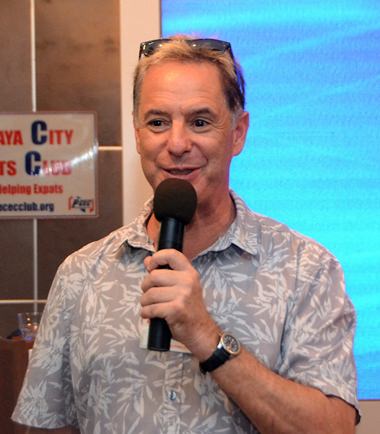
Patrick said the media has a natural negativity bias because we’re more attracted to nasty things than nice things. Studies show that nasty things cause more brain activity. This is why we have a biased negativity about politicians, Studies show that people think their local politician is ok, only the ones far away in Washington are corrupt. That’s why we think “my guy is ok, but your guy is corrupt.”
Patrick also commented on how media ties into culture. “The further away you go, the greater the calamity,” he said. “If you survey people at home, their opinion about Thailand is different than ours because their knowledge is limited. Probably all they think about is the overthrow of the government by the military and, bombs in Bangkok. They also have a quite different image of Pattaya than those of us who live here.
Similarly, he said, when his students read usually international news, they knew mostly about negative things and problems. But as you get closer to home, the news is more about the woman winning the lottery and the fireman who rescued a cat. The implication is that we see the outside world as dangerous place, and that gets played up by media.
Patrick said his talk was not necessarily meant as an indictment of all news. The main takeaway, he said, should be that we have to be better consumers of news, and do research for ourselves. He explained that sometimes reporters are putting out stories quickly rather than checking facts. Often they have to do a story about something they don’t know about, then have to move on to another story.
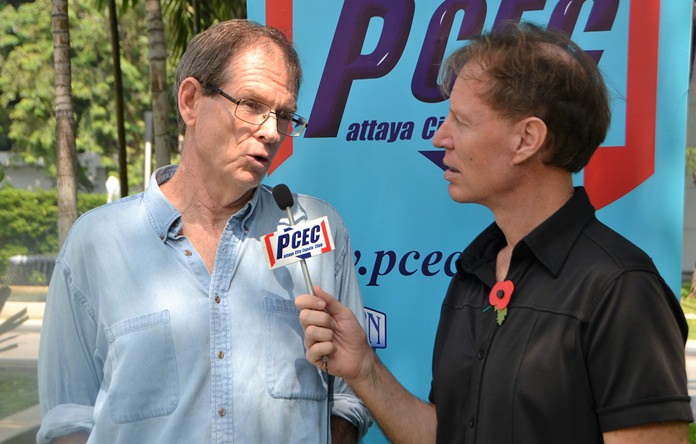
After the presentation, MC Roy Albiston brought everyone up to date on upcoming events and was followed by the Open Forum, where questions are asked and answered about Expat living in Thailand, especially Pattaya.
For more information on the PCEC’s many activities, visit the club’s website at www.pcecclub.org.




